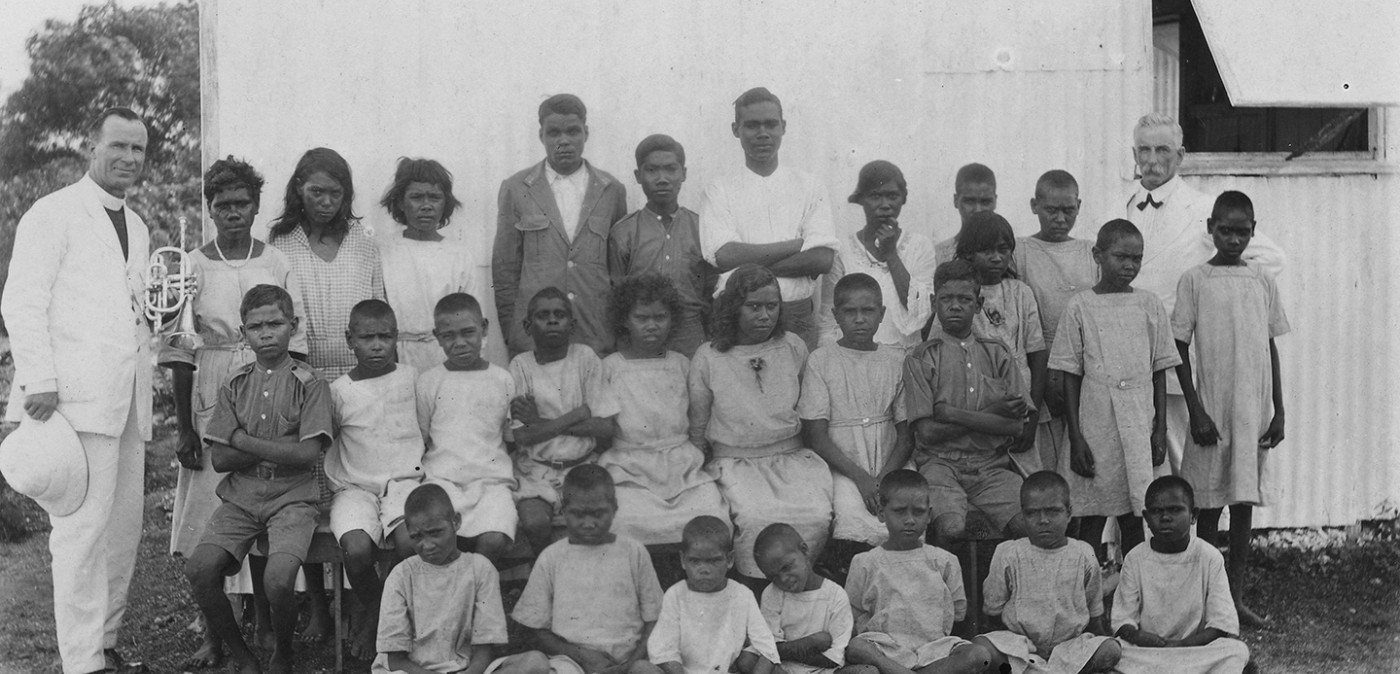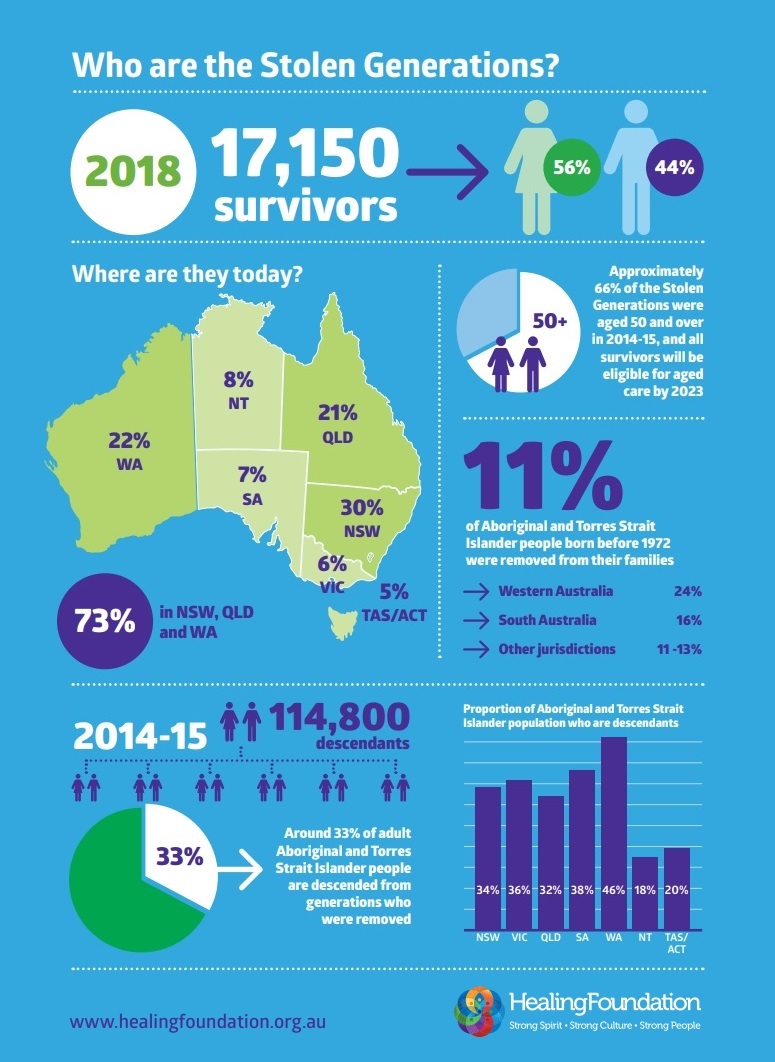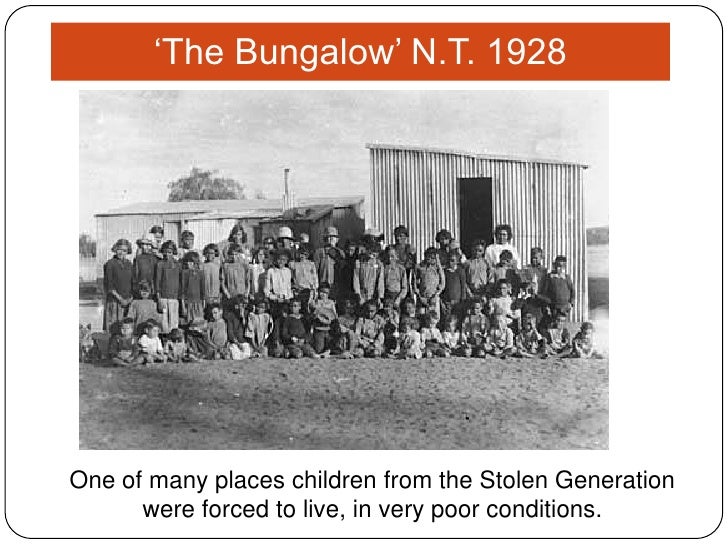Stolen Childhoods: Growing Up Through the Trauma of the Stolen Generation
Stolen Childhoods: Growing Up Through the Trauma of the Stolen Generation

The Stolen Generation, a term that encapsulates the harrowing experience of Indigenous children forcibly removed from their families and communities, stands as a testament to the enduring legacy of colonialism in Australia. This act of systematic dispossession, spanning decades from the late 19th century to the 1970s, ripped apart families and cultures, leaving behind a trail of intergenerational trauma that continues to impact Indigenous Australians today.
Growing up as a member of the Stolen Generation was a brutal reality, a childhood stolen by a government policy driven by misguided notions of assimilation and cultural superiority. This article delves into the profound impact of this historical injustice, exploring the multifaceted experiences of Stolen Generation survivors and the lasting consequences of their forced removal.
Related Articles: Stolen Childhoods: Growing Up Through the Trauma of the Stolen Generation
- The Soul Of The Land: Exploring The Rich History And Sounds Of Australian Aboriginal Instruments
- Unveiling The Tapestry Of Time: Understanding Aboriginal Traditional Stories
- Indigenous和aboriginal谁更具有贬义?Title
- Uncovering The Tapestry Of Time: A Journey Through The Aboriginal Map Of Australia
- Unearthing Your Next Adventure: A Comprehensive Guide To Contacting Unearth In Australia
The Roots of a National Shame:
The Stolen Generation policy was rooted in the deeply flawed belief that Indigenous Australians were inherently inferior and needed to be "civilized" through forced assimilation. The policy’s architects envisioned a future where Indigenous culture would be eradicated, replaced by white Australian values and practices. This misguided notion fueled the systematic removal of children from their families, often without any legal process or regard for the emotional and cultural devastation it would inflict.
The Trauma of Separation:
The act of forcibly removing children from their families was a traumatic experience that left lasting psychological scars. Imagine being torn away from your parents, siblings, and community, placed in an unfamiliar environment, and denied the love and support of your family. This was the harsh reality for countless Indigenous children, who were often subjected to physical and emotional abuse in government institutions.
The trauma of separation was compounded by the loss of cultural identity. Children were forbidden from speaking their native languages, practicing their traditional customs, and connecting with their ancestral heritage. This enforced cultural assimilation aimed to erase their Indigenous identity and replace it with a white Australian one.
The Impact on Identity and Belonging:
Growing up in institutions, away from their families and communities, robbed Stolen Generation survivors of a sense of belonging and identity. They were often subjected to harsh discipline, neglect, and inadequate care, leaving them feeling isolated, confused, and deeply insecure. The trauma of their experiences shaped their understanding of themselves and the world around them, creating deep-seated feelings of shame, anger, and resentment.
The Legacy of Intergenerational Trauma:

The trauma experienced by the Stolen Generation has had a profound impact on subsequent generations of Indigenous Australians. The cycle of intergenerational trauma, a phenomenon where the effects of trauma are passed down through families, has manifested in a range of social and emotional challenges, including:
- Mental health issues: High rates of depression, anxiety, and post-traumatic stress disorder (PTSD) are prevalent within Indigenous communities.
- Substance abuse: Alcohol and drug abuse are often used as coping mechanisms for dealing with the emotional pain of the past.
- Family breakdown: The trauma of the Stolen Generation has disrupted family structures, leading to higher rates of domestic violence and child abuse.
- Social isolation: The loss of connection to culture and community has contributed to feelings of isolation and alienation.

The Fight for Recognition and Justice:
Over the years, Stolen Generation survivors have fought tirelessly for recognition and justice. Their stories have brought to light the horrors of the past and exposed the systemic racism that underpinned the policy of forced removal. This ongoing fight has led to significant progress, including:
- The Bringing Them Home report: Published in 1997, this landmark report documented the devastating impact of the Stolen Generation and made recommendations for healing and reconciliation.
- The National Apology: In 2008, the Australian government issued a formal apology to the Stolen Generation, acknowledging the profound injustice inflicted upon them.
- The establishment of the National Indigenous Australians Agency: This government agency is dedicated to supporting Indigenous Australians and addressing the ongoing challenges they face.

Healing and Reconciliation:
While the journey towards healing and reconciliation is long and arduous, there is hope. The resilience of Stolen Generation survivors and their communities is a testament to the enduring strength of the Indigenous spirit.
Healing from the trauma of the Stolen Generation requires a multi-faceted approach, including:
- Access to mental health services: Providing culturally appropriate mental health support to Indigenous Australians is crucial for addressing the psychological scars of the past.
- Cultural revitalization: Supporting the revival of Indigenous languages, traditions, and cultural practices is essential for restoring a sense of identity and belonging.
- Education and awareness: Raising awareness about the Stolen Generation and its lasting impact is crucial for fostering understanding and empathy within Australian society.
- Truth and justice: Ensuring accountability for the injustices of the past and providing compensation to Stolen Generation survivors is essential for achieving true reconciliation.
The Stolen Generation: A Call to Action:
The story of the Stolen Generation is a stark reminder of the devastating consequences of colonialism and the enduring legacy of systemic racism. It is a call to action for all Australians to engage in meaningful reconciliation, to acknowledge the past, and to work towards a future where Indigenous Australians are treated with respect and dignity.
FAQ:
Q: What was the Stolen Generation?
A: The Stolen Generation refers to the period from the late 19th century to the 1970s when Indigenous children were forcibly removed from their families and communities by the Australian government. This policy was driven by misguided notions of assimilation and aimed to erase Indigenous culture and identity.
Q: Why were Indigenous children removed from their families?
A: The Australian government believed that Indigenous Australians were inferior and needed to be "civilized" through forced assimilation. They saw the removal of children as a way to break the cycle of Indigenous culture and integrate them into white Australian society.
Q: What were the consequences of the Stolen Generation policy?
A: The Stolen Generation policy had a devastating impact on Indigenous Australians, leading to:
- Loss of family and culture
- Trauma and psychological distress
- Intergenerational trauma
- Disrupted family structures
- Social isolation
- High rates of poverty and disadvantage
Q: What has been done to address the injustices of the Stolen Generation?
A: There have been significant efforts to address the injustices of the Stolen Generation, including:
- The Bringing Them Home report
- The National Apology
- The establishment of the National Indigenous Australians Agency
- Ongoing efforts to provide support and healing to Stolen Generation survivors
Q: What can be done to achieve reconciliation?
A: Achieving true reconciliation requires a multi-faceted approach, including:
- Addressing the ongoing impacts of intergenerational trauma
- Supporting cultural revitalization
- Fostering understanding and empathy within Australian society
- Ensuring accountability for the injustices of the past
- Providing compensation to Stolen Generation survivors
The Stolen Generation is a painful chapter in Australia’s history, but it is a chapter that must be acknowledged, understood, and addressed. By learning from the past and working towards a more just and equitable future, we can honor the resilience of Stolen Generation survivors and build a society where all Australians can thrive.
Closure
Thus, we hope this article has provided valuable insights into Stolen Childhoods: Growing Up Through the Trauma of the Stolen Generation. We thank you for taking the time to read this article. See you in our next article!



